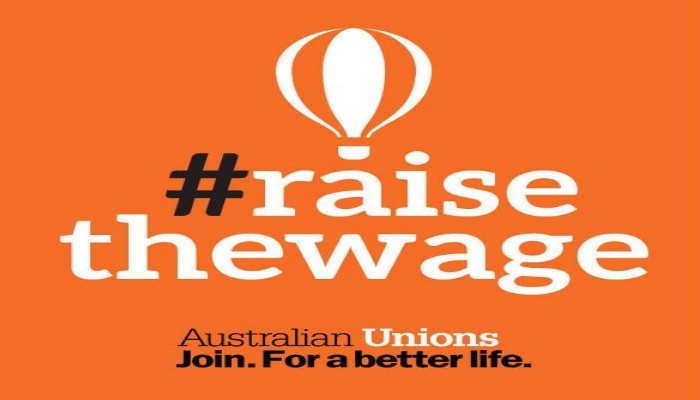
Minimum wage rise not enough say unions
Australia’s 1.86 million lowest paid workers will receive a $16 increase to their weekly pay packets following the Fair Work Commission’s decision in the annual wage case on 2 June.
But that won’t be enough to close the growing gap between average and minimum wages that is putting enormous pressure on those at the bottom of the pay scale.
Unions say that the decision means that the national minimum wage will be just 43.3 per cent of average weekly ordinary time earnings, the lowest proportion on record.
The $16 increase represents an additional 2.5% per week for the national minimum wage – below the 2.8% increase in average wages over the same period.
ACTU Secretary Dave Oliver said that the growing gap between the minimum wage and average wages meant Australia was creating a new US-style class of “working poor”.
The minimum wage is now $656.90 per week or $17.29 per hour – and this at a time when health, education and childcare costs are rising, not to mention housing prices!
The majority of Australian workers are not of course on the minimum wage. But the growing gap between those who are and those who aren’t is not only unfair – it represents a threat to the pay and conditions of all workers, especially those who are not organised.
As Dave Oliver says, “The reality is that any worker that wants a decent wage increase should join a union and get a collective agreement.”










